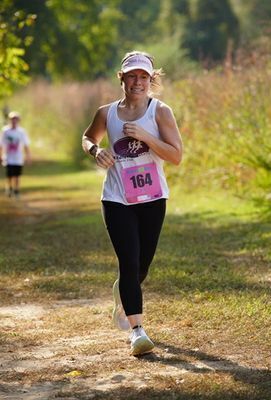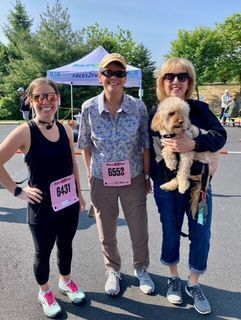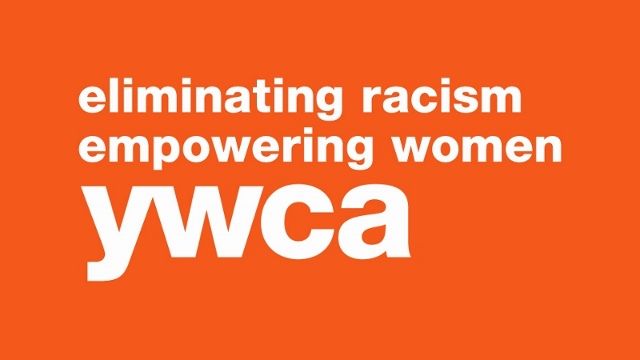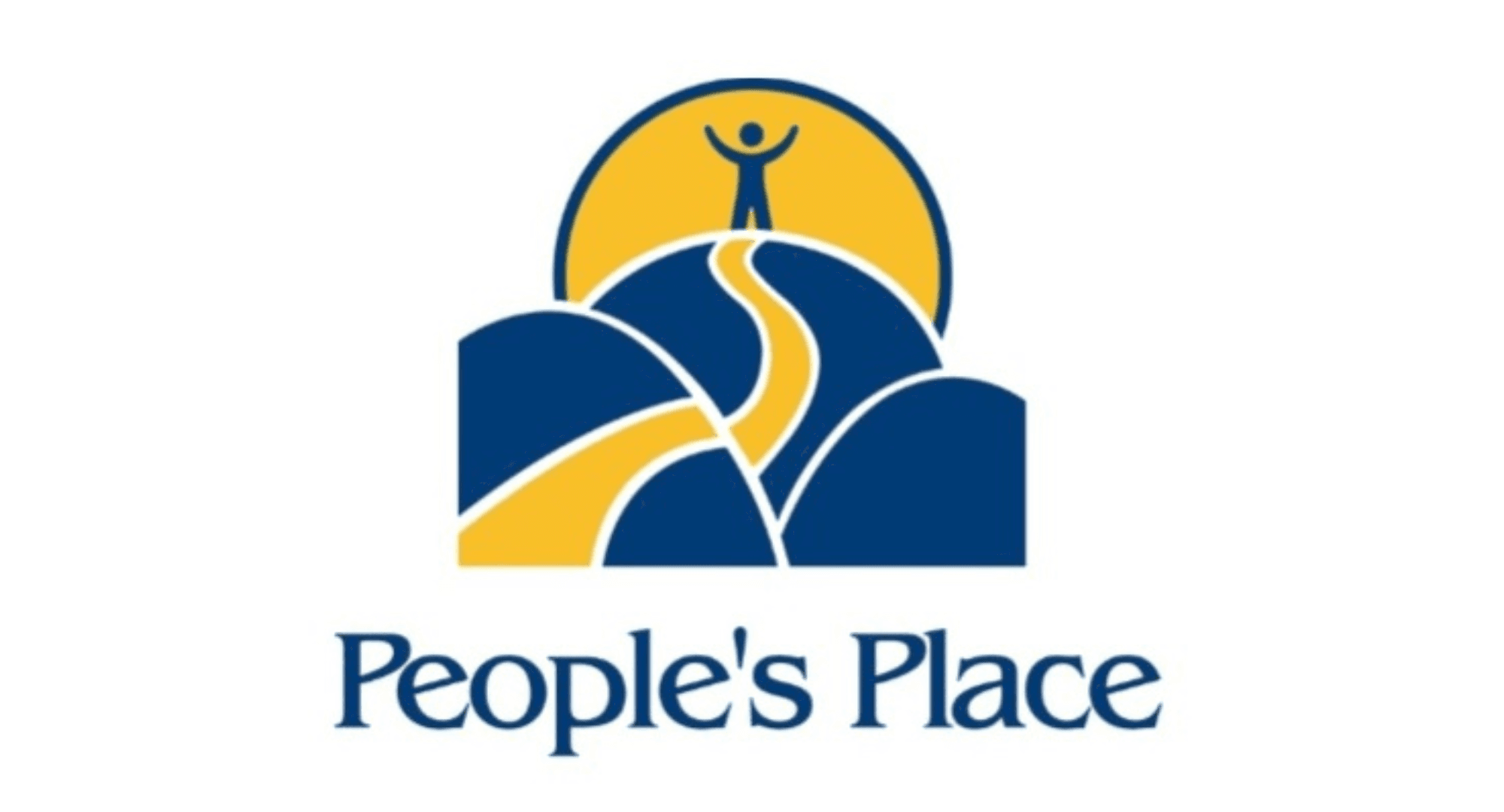Just Keep Moving
Erin Ridout, MSW, MPH, Program Manager, Health Equity- Women's Health, Christiana Care
2025. This feels like it could be a hard year (read: 4 years). When Jen asked me to write a blog post for DCADV, I was thinking about how hard the work domestic violence advocates do is – and how it could feel harder in the near future. I was thinking about this as I was out for a run. Running is something I do with alarming (to me) regularity at this point in my life. I never set out to be a runner. I actually started running after the birth of my second child in an effort to ‘reclaim my time’ and myself. That was in 2017 and I’m only really, just now, comfortable calling myself a runner, rather than a person who runs.
You might be trying to figure out what this has to do with a blog post for the Delaware Coalition Against Domestic Violence. Well, running is hard. It doesn’t get easier, so much as you get better at the challenge of it and learn to see and appreciate its benefits. I have had many hard runs and I have learned from these hard runs. Runners have all kinds of cliché sayings and advice that are great ways to motivate yourself on hard runs. While I was running and thinking about this blog post, it occurred to me that these running sayings can apply to the hard work DCADV members and advocates are often engaged in. So stay with me on this.

The first mile is a lie.
Never judge a run by the first mile. There are times (many) when I have wanted to turn back and give up in the first mile of a long run, and every, single time, I am grateful I did not. Almost always, by the time I finish the long run, I even feel like I could go farther. The lesson here is that starting new projects is hard. Starting new jobs or roles is hard. Some say it takes 12 months to really feel comfortable and confident in a new job. If you’re just starting a new role in your agency or a new job in the field, give yourself time to get to the part where you feel good. And you will feel good. If you’re in the middle of the first year of a new initiative or program – give it time. The first year is often messy as you find your way and make adjustments. You may find that the work that is most needed is not exactly what you set out to do – run with it!
Never make decisions while you’re going uphill.
If you’re running uphill, that is NOT the time to listen to your body. Your body will tell you to slow down or shorten the distance you planned on running that day. Go at least one minute further before you decide how much farther or faster you’re capable of going. Running uphill is hard (for me), but the whole run isn’t uphill (especially not in Delaware). There will be flat roads to coast and downhills to enjoy. If you give up while you’re going uphill, you don’t get to enjoy the downhill. Cheesy right? That doesn’t make it any less true. If you’re supporting a survivor and the outcome is not what you were both advocating for, that moment is not the time to decide if you can keep doing this important work. You and that survivor are resilient and there will be successes ahead. If the grant you applied for doesn’t come through, don’t give up on the program or idea you were working to implement. Look for the next grant; look for the next opportunity.

It's a marathon, not a sprint.
I feel like even non-runners know this saying. Marathons are 26.2 miles (ridiculous). Marathoners (don’t worry, I’m not one), even those who run them well, know that not every mile is the same. There can be setbacks over the hours it takes to run a marathon and the months it takes to train for one. There will be high points and there can be some very, very low points. Domestic violence advocates are not strangers to this concept. Domestic violence is a complex systemic social issue that is interconnected with other complex social issues (see: racism, sexism, ableism, and homophobia to start) meaning it is not easy to do the work that DCADV and other advocates do. This work takes an incredible amount of time and is the work of many over generations who commit to doing the work and then handing off the baton to the next generation of advocates (I didn’t even plan that relay metaphor!).
Run the mile you’re on.
This builds off the previous saying. When you have a long run ahead of you and focus on how far you are from the finish line, each step can feel like an enormous effort. But if you focus on the mile you’re on, not only does it feel manageable, it gives you the opportunity to see small wins in a long race. In the domestic violence field, there is a lot to do, a lot to dismantle, and far too many survivors who need your life-saving services. It can be hard to stay in this work if you get lost in the enormity of it. So you run the mile you’re on – you focus on the task, the program, the initiative, the survivor in front of you. What can you do each day to make an impact? Don’t forget to celebrate the small wins on your way.

Just keep moving your feet.
That’s all running is – taking step after step (with a little bounce) over and over again as the miles tick by. It’s not fancy. And for most runners, it is not glamorous. On days when it feels hard or slow, when it’s raining, snowing, or the wind is against you (in both directions somehow!), all you have to do is keep moving your feet. 2025 may feel like the start of the hardest run yet. In this work, there may be a lot of additional distractions, noise, and challenges. Focus on the basics – what do you or your agency control? What can you show up and do well that makes a difference? Progress doesn’t have to be fast, it can be one step into a headwind again, and again, and again.
So what do you think? Have I converted you all into runners? Sounds fun, right? One of the reasons I continue to run is because it is how I show up for myself. I usually show up for myself early in the morning because once the kids’ feet hit the floor, I have slightly less control of my day. I also know I’ll be tired when I get home from work and even more tired once the kids finally go to bed. And I love starting my workday knowing that I’ve already done something hard. It makes the rest of the day a little bit easier. So run or don’t – just find one thing you can do for yourself each day. You have to show up for yourself if you’re going to show up for others. And there is going to be a lot to show up for in 2025 (and 2026, and 2027, and…you get it).




